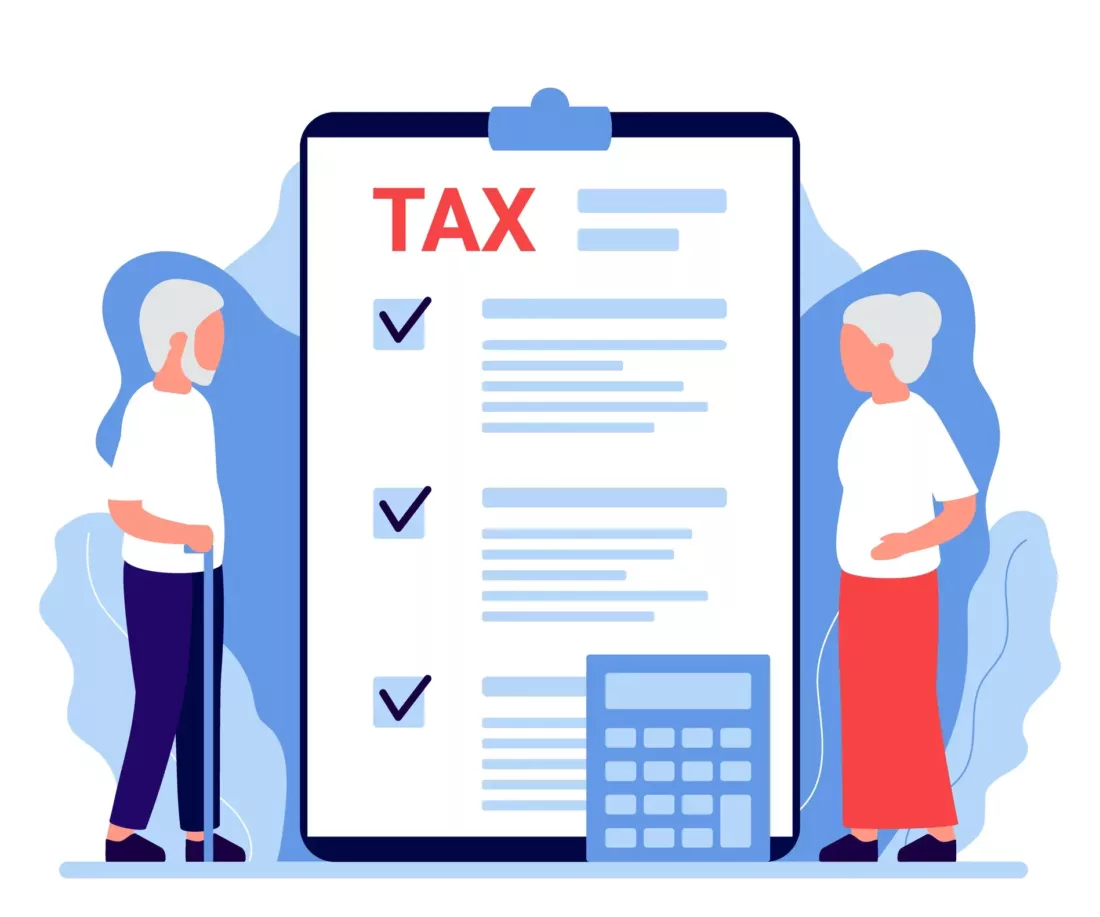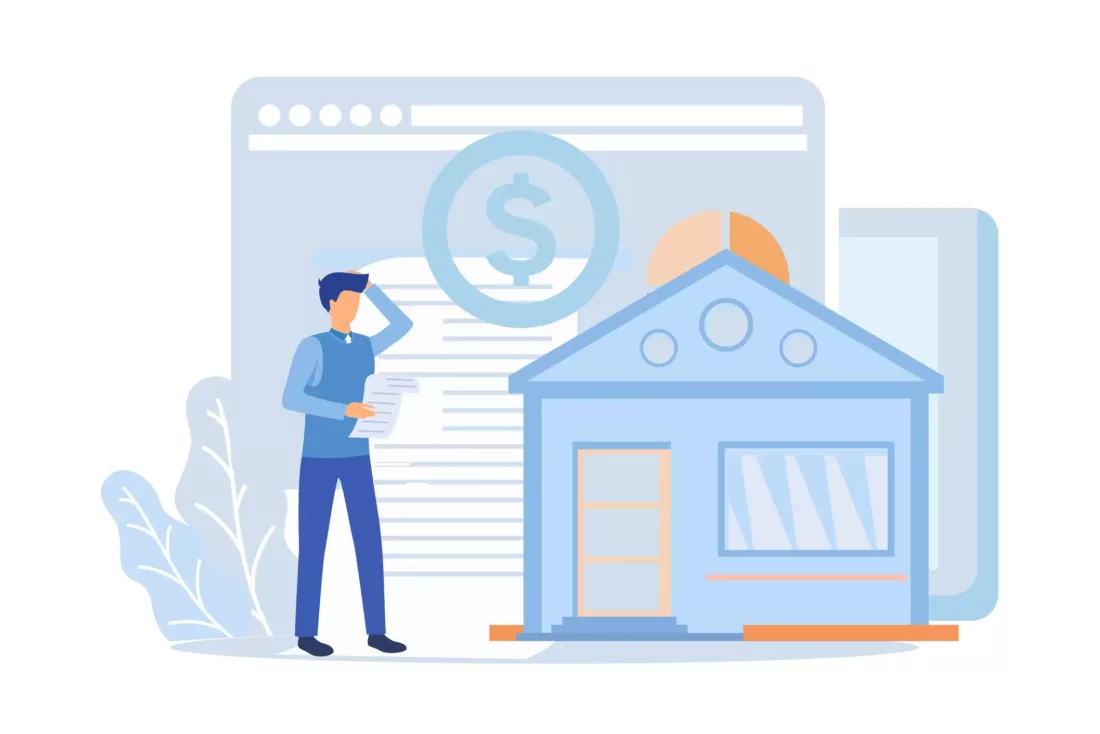Are Married Couples Taxed Separately in the UK? The Tax Benefits of Marriage
- What are the tax benefits of marriage in the UK?
- How HMRC marriage tax refunds work
- Start your marriage tax claim
When it comes to taxation in the UK, it’s useful to know how it works. Even a basic understanding can do wonders to reduce your tax bill. In terms of married couples or those in civil partnerships, they are taxed separately. Even though this is the case, there are several tax benefits of marriage that unmarried couples can’t make use of.
This article will go through how independent taxation works, why you can benefit as a married couple and what tax breaks you can make use of. It will then explore various other tax benefits of marriage in the UK. The HMRC marriage tax refund is one of the ways in which married couples have an edge over coupled individuals.
Want to make use of Marriage Tax Allowance already? Use our online eligibility checker to see if you qualify. It only takes a minute.

What's On This Page?
Click the links below and head straight to a specific section of the article.
What Is Independent Taxation?
Introduced in 1990, independent taxation means everyone is assessed for tax as an individual. Even if you’re married or in a civil partnership, you won’t be taxed as a couple. Before then, the income of a married woman was considered part of the income of the husband and was taxed in that way. Before this was changed, the tax benefits of marriage were not fair on the wife. Now, women have had their own income taxed separately for over 30 years.
What Tax Benefits of Marriage Can I Make Use Of?
Married Couple’s Allowance
When independent taxation was introduced, the Married Couple’s Allowance also came into effect. All married couples could benefit from this marriage tax claim, giving you a rebate on the amount of tax you pay per year as a couple. The tax benefits of marriage in this case ran for 10 years until the rules were tightened, but if you qualify you can still apply.
You can learn how to apply for Married Couple’s Allowance in the section outlined below.
Marriage Tax Allowance
New in 2015, the Marriage Tax Allowance allows non higher rate taxpayers to transfer some of their personal allowance to their spouse or civil partner. Originally set at £1,050, it became 10% of the personal allowance for subsequent years. In terms of less strict criteria, the tax benefits of marriage allows more people to make use of it.
Eligibility and applying for Marriage Tax Allowance are both covered later in this article.
Claim Married Couple’s Allowance
For older couples who were born before 6th April 1935, you are able to claim a generous allowance just by being married. Civil partnerships also count. Sometimes seen as one of the original tax benefits of marriage, this allowance works more favourably than its replacement.
Working as a reduction in your annual tax bill, this allowance can be quite beneficial. For the current 2024/2025 tax year, this could be from £401 to £1,037.50. In terms of the tax benefits of marriage, this is the most rewarding tax relief you can receive. It works by transferring any unused amount of your allowance to your partner if you don’t pay tax or you don’t use the full amount you’re entitled to.
Eligibility

The criteria for claiming the Married Couple’s Allowance is much stricter than it was in 1990. You now need all of the following to apply:
You are married or in a civil partnership
You live together
You or your partner were born born before 6th April 1935
If circumstances prevent you from living together, you can still qualify. This can include being in care, prison or training/education. Although the tax benefits of marriage here are more stringent, the rewards are better. Not everyone will qualify, and fewer people will be able to claim this in subsequent years.
How to Apply
When applying, you can choose whether to share the minimum allowance or transfer the whole minimum amount from one partner to the other. Tax benefits of marriage such as this can either be completed by contacting HMRC and going through the lengthy process yourself, or by having a claims management company do all the work for you.
Claim Marriage Tax Allowance
Tax benefits of marriage are now usually only concerned with the Marriage Tax Allowance. This allows you to transfer 10% of your personal allowance to your partner, providing they are a basic rate taxpayer. The idea behind this is that the non-taxpayer will not be making use of their full personal allowance, so they can reduce the tax bill of their partner to receive a reduction in tax as a household.
While personal allowance rates have changed over the years, the idea is the same. This is the amount you are allowed to earn each year without paying any tax on it. It’s currently £12,570. The tax benefits of Marriage Allowance mean you can qualify for a reduction in your tax bill by up to £252 for the current period. Previous years have been slightly lower than this, but you can backdate it to receive a lump sum for years in which you qualify.
Eligibility

A lot less strict than the Married Couple’s Allowance, the following must apply to be able to claim Marriage Tax Allowance:
You are married or in a civil partnership
The lower earner does not pay income tax or their income is less than their personal allowance
Your partner pays the basic 20% rate of tax (income between £12,571 and £50,270)
The reasoning behind a lower earner and the personal allowance is because it works out more beneficial if you aren’t close to the bracket. By transferring £1,260 of your personal allowance to your other half, your taxable income threshold falls as theirs raises.
The tax benefits of Marriage Allowance are more beneficial if the lower earner has an income less than £11,310. This gives you as a couple the maximum allowance. If you’re earning more than this, you will then both pay tax, which will make you worse off.
How to Apply
Similar to Married Couple’s Allowance, you can receive the tax benefits of Marriage Allowance by contacting HMRC and going through the task of filling in lengthy paperwork. Alternatively, you can use a claims management company to process your claim for you.
Once applied for, your tax code will change to reflect your new allowance status.
Backdating a Claim
The Marriage Tax Allowance can be backdated by up to four years, which can work out as a nice lump sum. In terms of the tax benefits of marriage, receiving a big rebate is certainly one of them.
For the current tax year, the highest amount you’re entitled to is £252. If you backdate for four years, you can receive the following amounts:
2023/2024 - £252
2022/2023 - £252
2021/2022 - £252
2020/2021 - £250
In total, this amounts to £1,006. In addition to the current year, the total tax benefits of Marriage Allowance come to £1,258. You can only backdate for the years in which you qualify for Marriage Allowance. Use the interactive graph below to find out how much you could be entitled to.
Other Marriage Tax Benefits in the UK
There are other tax benefits of marriage that go beyond claiming back on tax. These include being able to transfer assets tax-free to your spouse and not paying as much capital gains tax. When it comes to reducing your tax bill, marriage can make all the difference and save you thousands in return.
Paying Less Capital Gains Tax
One of the biggest tax benefits of marriage is that the exemption for capital gains tax is doubled for married couples. As individuals are taxed separately, there is an exemption of £12,300. Those married or in civil partnerships benefit from a doubled rate of £24,600.
Capital gains on selling property, on the other hand, depends on your tax rate. This is 28% for a higher rate taxpayer but 18% for a basic rate taxpayer. The tax benefits of marriage allow you to gift assets without incurring any penalties, so you reduce the amount of capital gains tax you have to pay if you gift it to your lower taxpaying partner.
As an example, a home valued at £300,000, but bought at £200,000 has a potential gain of £100,000. In this instance, capital gains tax would be £28,000 (28%). If you transfer the asset to your partner, you can reduce the overall tax. A lower tax paying partner will have a reduced capital gains tax of £18,000 (18%).
It’s important to get financial advice before transferring assets between partners to benefit from any tax benefits of marriage, just so you’re clear on the amount you’ll need to pay.
Reduced Inheritance Tax

When anyone dies, gifts to others (property or otherwise) over £325,000 are charged tax. Anything over this nil-rate band incurs a 40% excess tax. This is typically the case, but the tax benefits of marriage allow you to leave anything to your partner without incurring any tax. You can effectively pass on assets for free.
As well as this, the nil-rate band is doubled to £650,000 for married couples. This gives you more breathing room. When direct descendants are involved, they can also benefit from this higher nil-rate band, giving you more control over parental responsibility. When it comes to the main residence, the tax benefits of marriage allow you to pass on property tax-free up to the value of £1 million.
Lifetime Gifts
As a married couple or one in a civil partnership, you can also make lifetime gifts to your partner without them being treated as potentially exempt transfers for inheritance tax purposes. So the tax benefits of marriage keep on giving.
Inheritance tax will be charged to anyone else if you die within seven years from the date of the gift. For the avoidance of doubt, the transfer to your partner must be a genuine, outright gift in order for it to be exempt from taxation.
Pensions
Finally, the last of our tax benefits of marriage is that some pensions continue after you die, meaning your spouse will benefit instead of the money going to waste. As long as there is a final salary scheme, the surviving partner can benefit.
The tax benefits of marriage won’t apply for all pensions. You’ll have to check the small print as some pensions don’t pay out if the couple is living together. Others will only pay out for financial dependents, while you might be able to nominate a partner in some instances.
Start Your Marriage Allowance Claim
If these various tax benefits of marriage haven’t sold you already, then perhaps a reduction in your taxable household income might.
Find out if you qualify by clicking on the button below to check your eligibility.
Related articles

What Martin Lewis Has Said About Marriage Tax Allowance

Retirement and the Marriage Allowance

What You Need to Know About Marriage Allowance

How Do I Claim a Marriage Tax Allowance Refund?

Civil Partnerships - Can You Still Claim HMRC Marriage Allowance?

The Marriage Allowance: How It Works and How To Claim It

Marriage Tax Allowance and Married Couple’s Allowance 2024







